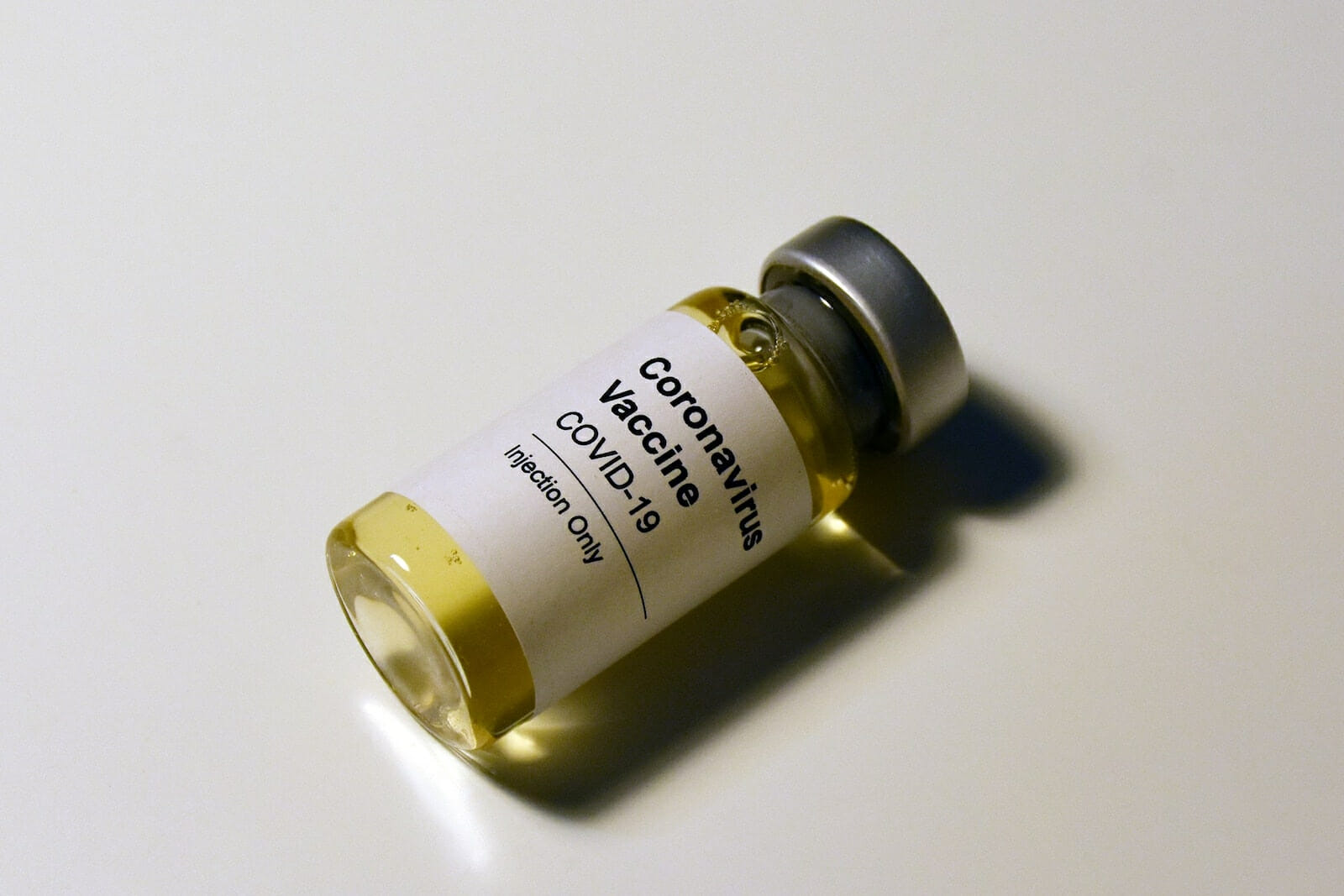
Business
The Free Market Could Have Saved Numerous Lives Lost to Covid
When the pandemic hit, and many businesses found themselves struggling with restrictive lockdown measures, voices heralding the demise of capitalism as we know it were getting louder. It was argued that the economic slowdown exposed fatal flaws of capitalism, and an overhaul of free market principles was the only way forward. For example, this Guardian article lays out an argument for the COVID era: Governments need to tap into the current health crisis to “do capitalism differently.” But was it capitalism that enabled the recession, or excessive government interventions that obstructed the proper functioning of the free market?
Vaccines: Success and Failure
Reportedly, the Moderna vaccine, whose efficacy rate has been proven to be 94.1%, was designed as early as January 13 – more than a week prior to the first registered COVID case in the U.S. David Wallace-Wells of New York magazine writes: “You may be surprised to learn that of the trio of long-awaited coronavirus vaccines, the most promising, Moderna’s mRNA-1273, which reported a 94.5 percent efficacy rate on November 16, had been designed by January 13. This was just two days after the genetic sequence had been made public in an act of scientific and humanitarian generosity that resulted in China’s Yong-Zhen Zhang’s being temporarily forced out of his lab.”
However, as per FDA regulations, the substance was required to go through three mandatory phases of medical trials before Moderna could be allowed to proceed with a public rollout. Was that necessary, you may ask? Given how protracted and seemingly excessive bureaucratic processes usually get, such a question is not misplaced.
The vast history of vaccine development comprises not only positive stories of triumph of human agency and scientific inquiry over malicious germs it also contains episodes of a presumed cure turning out to be a poison. For example, a tainted polio vaccine that killed ten and paralyzed 200 in 1954. These historic cases were factored in when forming multiple governmental entities overseeing vaccine safety. The Division of Biologics Standards, for instance, was established in the aftermath of the polio vaccine incident the same year. Later, this body was incorporated into the Food and Drug Administration (FDA), which executes similar duties to this day.
A lot has changed in the field of immunology since. There is a distinctive feature of the new mRNA vaccines, such as the ones designed by Moderna and BioNTech. None of them use the real viral material, unlike the notorious polio vaccine. While the method of employing a weakened or inactivated virus had been the commonly accepted one until very recently, new vaccines, like mRNA, work differently. They build an immune response by teaching cells to make a harmless “protein spike,” – the hallmark of SARS-CoV-2. The “instructions,” injected into a body through vaccination contain no real virus material. Hence, the likelihood of infection as a result of it is virtually nonexistent.
The swiftness of the scientific response to the pandemic was truly unparalleled. What once required no less than ten years of grueling research and continuous trials, has been pulled off in less than a year. However, the government interventions – as it has almost always been the case – stalled what could have been yet another miracle of the free market. It should not come as a surprise that the private labs, which eventually produced the vaccines, were motivated by the prospects of financial gains. Even a cursory analysis of the history of humankind’s greatest inventions will lead one to conclude that pecuniary incentives have always propelled innovation.
Patents, for instance, serve precisely this function: to secure economic gains for the inventor by ensuring excludability of their intellectual property. In absence of patent laws, the inventions that have become indispensable parts of our daily lives would be inconceivable. Though it is obvious that an inventor’s monopoly over the product of their invention diminishes the net social benefit in the long-run, the initial incentive – the main driving force behind innovation – hinges on the inventor’s capability to secure exclusive ownership rights. In the case of the mRNA vaccines, nearly half of all patent applications are owned by four companies that have successfully completed the phase III trials by December 2020.
The companies at the forefront of vaccine development have reaped the fruits of their innovation. In less than a year, the market cap of Moderna rose by more than 640%, while that of BioNTech witnessed a threefold increase. Such a tremendous rise in these companies’ market value has been induced by the market’s expectation of huge economic benefits that their innovation can create. Indeed, a reliable vaccine can put an end to the pandemic and revive economic activity, bringing the world back on track to reduce global poverty rates. Whilst the supply side has already benefitted, the demand side is forced to wait. And the FDA guidelines are to blame.
Is the FDA Infallible?
The scientists who worked on the Moderna vaccine say that they had no doubts concerning its safety from the very start. As per the FDA regulations, however, the public rollout cannot be approved until all three trial phases are completed. Granted, some may deem such rules justified since they are, after all, meant to ensure the basic safety of the extremely vital product entering the market. But, as we have seen on multiple occasions, FDA’s judgments are often astoundingly unreliable.
Hydroxychloroquine is a case in point. In March, in what became a hotly disputed point of partisan contention, the FDA issued emergency use authorization for the drug, so that it could be used for treating COVID patients. Later, the side effects, such as an increased likelihood of a cardiac failure associated with the drug’s use resulted in the agency’s decision to revoke the authorization. So, if the FDA is incapable of accurately determining a drug’s safety, which poses an even greater peril in emergency situations, why does it still wield the power of meddling into the market mechanisms?
With outgoing President Trump’s fervent insistence on hydroxychloroquine being the “real game changer,” the FDA’s decision to later revoke the drug’s authorization infuriated many Republicans, turning this purely public health matter into yet another partisan one. That, in turn, undermined the image of the regulatory body, and most of its subsequent actions, no matter how competent, were met with a great deal of suspicion by conservatives.
Another example of the entity’s costly obstructionism was reflected in the decision to impose a ban on industrial N95 masks. The ensued shortage of masks, which exacerbated the public health crisis in the United States, could have been avoided by the regulatory function of market prices: when higher prices drive up the supply and eventually eliminate the shortage. Throughout the pandemic, the government regulations in the form of FDA’s guidelines and mandates demonstrated not only an ineptitude to promptly gauge drugs’ safety, but also a lack of logical soundness, all of which took a devastating toll on the lives of thousands.
Moreover, as it turns out, the FDA’s “safety policies” are not universally applicable. Dietary supplements, unlike vaccines and drugs, do not need approval from the FDA to be marketed. While it may seem that the lack of regulation is due to the nature of dietary supplements, which are believed to be less harmful by design, data from a study published by the New England Journal of Medicine proves the opposite. Every year, a staggering number of 23,000 emergency room visits are caused by the adverse effects of “harmless” dietary supplements.
The Free Market is the Best Regulator
The case of an unregulated market for supplements goes to show the potency of the free market’s inherent self-regulatory capacity. There, individuals are free to choose, and the detriments of asymmetrical information are compensated by higher levels of competition. That, in turn, encourages the producers to share as much verifiable information about their product as possible in order to uphold a positive image. Why so? A study published by Harvard Business School demonstrates that in a competitive environment, buyers lean towards more transparent producers. Since consumers face no shortage of options and are equipped with a sufficient amount of information, unsafe supplements are quick to get squeezed out of the market.
By the same token, FDA’s regulatory functions should have been outsourced to the free market in case of the COVID vaccine, too. Though it is unlikely that in such a scenario the Moderna vaccine would have been made available for purchase right after it was designed say on January 14th, the company, and not the FDA, would have assumed full responsibility for the vaccine’s safety and efficacy. For that to happen, companies should have been granted the liberty to decide on a rollout date at their own pace.
Only after the company was confident in the substance’s quality, would it make a decision to put it on the market. Such a strategy not only ensures a drug’s safety, but it is also in line with any firm’s natural desire to maximize profits. A high-quality product is more likely to enjoy greater demand among customers. If, by a confluence of inexplicable factors, the Moderna vaccine did turn out to be hazardous, or unfit to use in any other way, the market would have quickly figured it out given the ease with which information can now be spread and accessed.
Considering the earliness of scientific consensus on the Moderna vaccine’s safety, the free market’s inherent regulatory capacity, and the FDA’s overall problematic track record, it is hard to overstate the positive effects that the society would have gotten as a result of deregulation. Perhaps, less damage would have been inflicted on the economy, and even some of our loved ones would still be alive. If anything, the pandemic has shown that we need to do government regulations differently; not capitalism.

